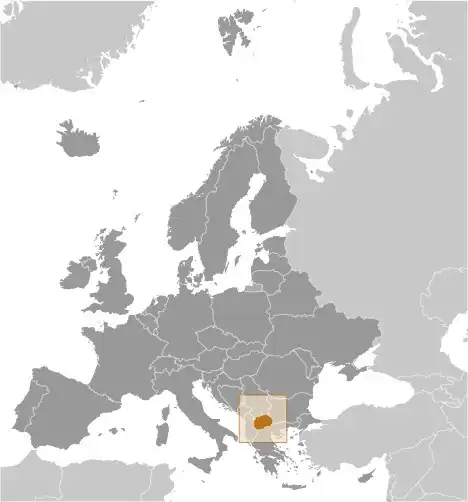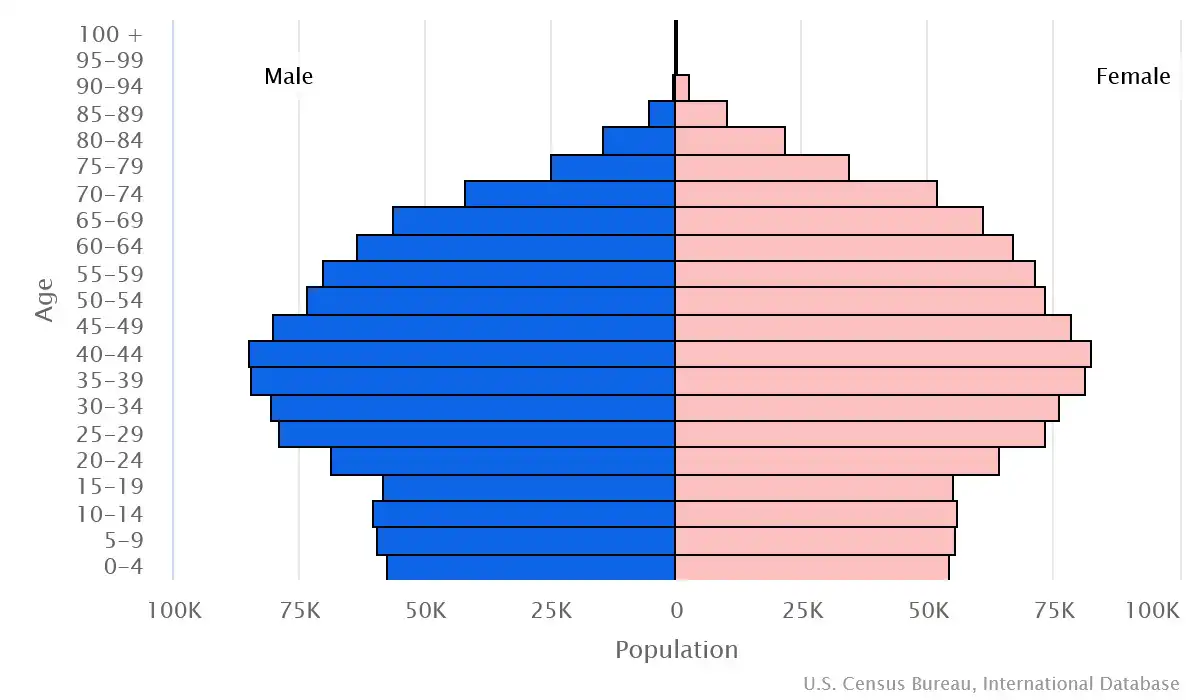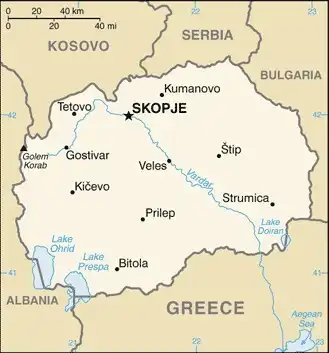
North Macedonia Country Profile
Key Facts of North Macedonia

| Government type: | parliamentary republic |
| Capital: | Skopje |
| Languages: | Macedonian (official) 61.4%, Albanian (official) 24.3%, Turkish 3.4%, Romani 1.7%, other (includes Aromanian (Vlach) and Bosnian) 2%, unspecified 7.2% (2021 est.) |
North Macedonia Demographic Data
Ethnic Groups in North Macedonia(2021 est.)
Religious Groups in North Macedonia (2021 est.)
Age pyramid of North Macedonia

North Macedonia Economy Statistics
Economic overview of North Macedonia
upper-middle-income European economy; recovering from energy-driven inflation; macroeconomic support from IMF and EU lending facilities; stalled progress on EU accession; fiscal consolidation hampered by deficit spending on public works; structural challenges of emigration, low productivity growth, and governance
North Macedonia Real GDP (purchasing power parity) in Billion $
North Macedonia Real GDP per capita in $
North Macedonia's Exports & Imports in billion $
Top 5 Import Partnerin 2022 (52%) of North Macedonia
Top 5 Import Commodities in 2022 of North Macedonia
- platinum 🪙
- refined petroleum ⛽
- electricity ⚡
- precious metal compounds 💍
- natural gas 💨
Top 5 Export Partnerin 2022 (65%) of North Macedonia
Top 5 Export Commodities in 2022 of North Macedonia
- reaction and catalytic products ⚗️
- insulated wire 🔌
- electricity ⚡
- garments 👕
- vehicle parts/accessories 🛠️🚗
Geography of North Macedonia
Map of North Macedonia

Land and Water Distrubtion of North Macedonia
Natural Resources of North Macedonia
- low-grade iron ore ⛓️
- copper 🟧🪙
- lead 🪙
- zinc 🔩
- chromite 🪨
- manganese 🪙
- nickel 🪙
- tungsten 🔧
- gold 💰
- silver 🪙
- asbestos 🏭💨
- gypsum ⚪🪨
- timber 🌲
- arable land 🌱
Climate inNorth Macedonia
warm, dry summers and autumns; relatively cold winters with heavy snowfall
History of North Macedonia - a Summary
North Macedonia gained its independence peacefully from Yugoslavia in 1991 under the name of "Macedonia." Greece objected to the new country’s name, insisting it implied territorial pretensions to the northern Greek province of Macedonia, and democratic backsliding for several years stalled North Macedonia's movement toward Euro-Atlantic integration. Immediately after Macedonia declared independence, Greece sought to block its efforts to gain UN membership if the name "Macedonia" was used. The country was eventually admitted to the UN in 1993 as "The former Yugoslav Republic of Macedonia," and at the same time it agreed to UN-sponsored negotiations on the name dispute. In 1995, Greece lifted a 20-month trade embargo and the two countries agreed to normalize relations, but the issue of the name remained unresolved amid ongoing negotiations. As an interim measure, the US and over 130 other nations recognized Macedonia by its constitutional name, Republic of Macedonia.
Ethnic Albanian grievances over perceived political and economic inequities escalated into an armed conflict in 2001 that eventually led to the internationally brokered Ohrid Framework Agreement, which ended the fighting and established guidelines for constitutional amendments and new laws that enhanced the rights of minorities. In 2018, the government adopted a new law on languages, which elevated the Albanian language to an official language at the national level and kept the Macedonian language as the sole official language in international relations, but ties between ethnic Macedonians and ethnic Albanians remain complicated.
In 2018, Macedonia and Greece signed the Prespa Agreement whereby Macedonia agreed to change its name to North Macedonia, and the agreement went in to force on 12 February 2019. North Macedonia joined NATO in 2020 after amending its constitution as agreed and opened EU accession talks in 2022 after a two-year veto by Bulgaria over identity, language, and historical disputes. The 2014 legislative and presidential election triggered a political crisis that lasted almost three years and escalated in 2015 when the opposition party began releasing wiretapped material revealing alleged widespread government corruption and abuse. The country still faces challenges, including fully implementing reforms to overcome years of democratic backsliding, stimulating economic growth and development, and fighting organized crime and corruption.
